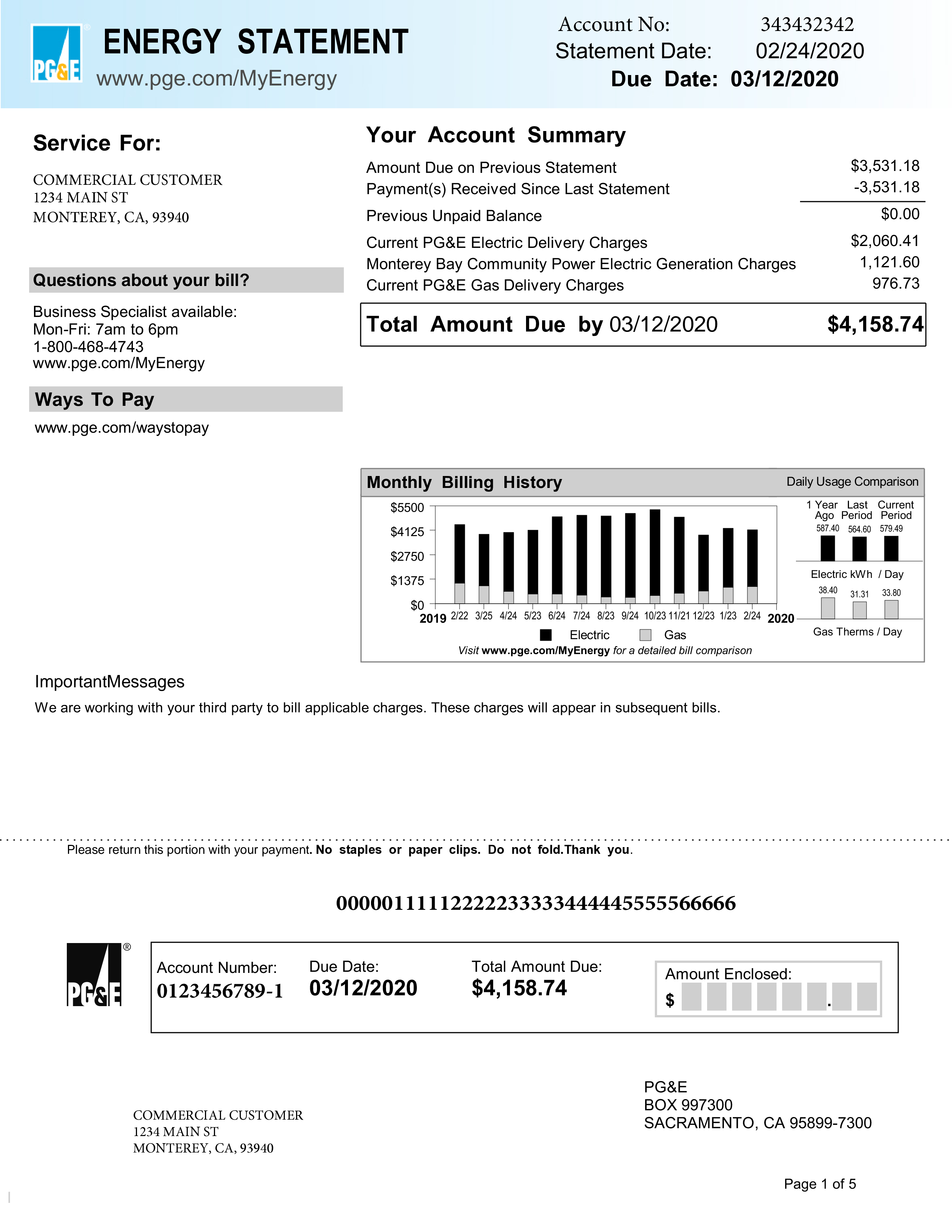Energy Bill Invoice Template
Edit Now
An energy company is a business that produces, distributes, or sells energy products and services, such as electricity, natural gas, and renewable energy.
The costs that an energy company can implement to users may include:
- Energy rates: Energy companies charge users for the energy they use, which is measured in kilowatt-hours (kWh) for electricity or cubic feet (CF) for natural gas.
- Connection fees: Energy companies may charge a connection fee for setting up service or connecting new users to their network.
- Late payment fees: If a user fails to pay their energy bill on time, energy companies may charge late payment fees.
- Deposits: Energy companies may require a deposit from new users or users with a poor payment history to ensure payment for services.
Typical items that an energy company will charge you for may include:
- Meter fees: Energy companies may charge a fee for installing, maintaining, or reading the meter that measures the user's energy usage.
- Delivery charges: Energy companies may charge a delivery fee for the distribution of energy to the user's location.
- Renewable energy premiums: Energy companies may offer users the option to purchase energy from renewable sources, which may come at a premium cost.
- Taxes and surcharges: Energy companies may pass on taxes and surcharges to users, such as state or federal taxes, environmental fees, or infrastructure surcharges.
It's important to read and understand the terms and conditions of your energy company's service agreement, including the fees and charges associated with your energy usage. Users can also compare rates and plans from different energy companies to find the best deal for their needs.
